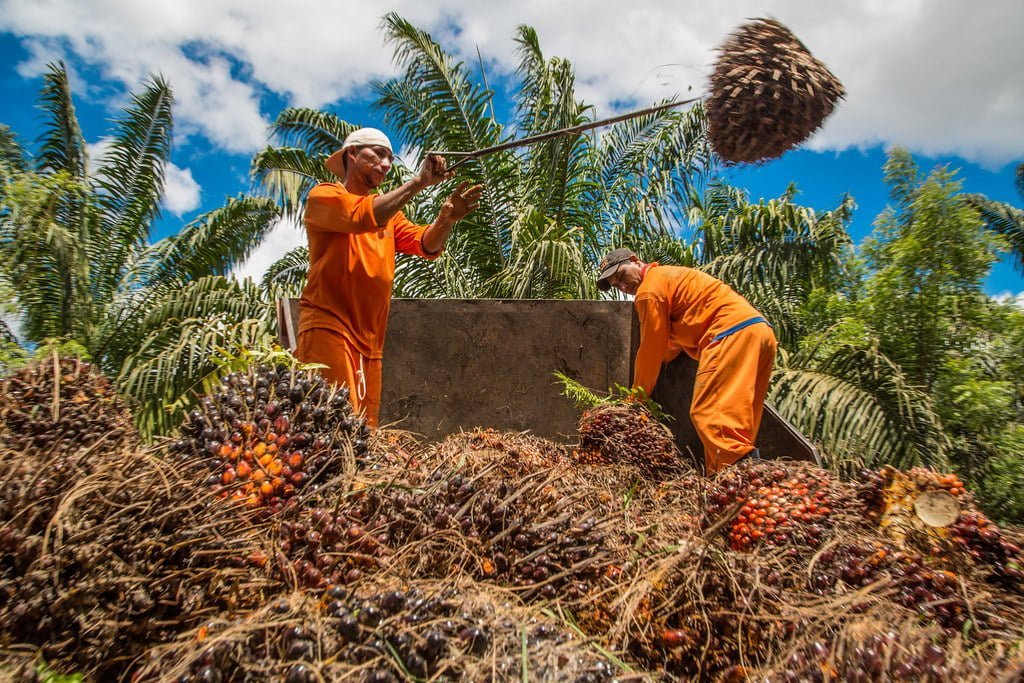Despite apparent concern for the environment and human rights, the world’s largest food companies have shown that their only real concern is profit. Only working-class solidarity provides the answer.
Palm oil is an ingredient that is common in packaged foods. Examples include well-known brands such as Oreos and Mars. Recently, however, a scandal has hit the food industry regarding the heinous source of its palm oil supplies. This scandal has once again exposed the callous nature of capitalism.
One prominent palm oil manufacturer is a Malaysian company, FGV Holdings Berhad. It has recently been hit with accusations of using slave labour. The US Customs and Border Protection agency has been lobbied by NGOs, academics and others to block imports of palm oil from the company to the United States.
Evidence suggests that the company is luring migrant labourers to its plantations, where they are then subjected to a tyrannical system of control. This includes being loaded with debt, having their passports confiscated, being forbidden from leaving the farms where they work, and being made to sign contracts written in languages they do not understand.
Thirst for profit
Over 20,000 migrant workers (some of them suspected to be children) are employed on the farms owned by FGV. Spread over almost one million acres, they have supplied some of the world’s largest food companies with palm oil – including Mars, Nestle, Hershey and Pepsi, to name but a few. In fact, there is proof that these companies have all been aware of these issues since 2015.
Major food companies have insisted that they are taking steps to ensure that their products are ‘responsibly sourced’ – in other words, that they don’t damage the environment or involve human rights abuses. Of course, this is only so much hot air. These companies will utilise whichever materials and labour are required to cut costs. Their concern is, first and foremost, for how much profit they can make.
In the ex-colonial countries, many labour protections that have been won through struggle by Western workers are non-existent. Moreover, as in the advanced capitalist countries, the state is all-too-often linked by a thousand threads to the despicable practices of these corporations. It is no surprise, then, that FGV is able to get away with its outrageous exploitation of migrant workers.
Solidarity
 Instead of relying on private corporations, NGOs and governmental agencies to crack down on abuses of labour, what is needed is a response by the organised working class.
Instead of relying on private corporations, NGOs and governmental agencies to crack down on abuses of labour, what is needed is a response by the organised working class.
The working class internationally should mobilise to show solidarity with oppressed migrant workers. There should be organised workers’ boycotts of products manufactured by companies that rely on migrant slave labour. These should be carried out first and foremost by the workers of the companies that rely on this slave labour for their supply of palm oil.
In addition to this, migrant workers within countries such as Malaysia should be encouraged to organise and fight back against their oppressors. In this, they should seek the support of the working class in the rest of Malaysia and beyond.
Fightback
The hideous situation occurring on Malaysian palm oil farms should wake us up to the true nature of capitalism. Without the resistance of the organised working class, the capitalists will do everything in their power to exploit every last drop of surplus-value from their workers. Free from all restraint, they will go to any lengths, to the point of reducing workers to slavery.
In particular, the labour movement in Britain should take note of what is going on in Malaysia. Without a fightback, the Tory government will continue to attack and erode regulations protecting workers’ rights, making the position of migrant workers, in particular, more precarious still.
These attacks should be fought, not with calls to remain in the EU, which is a corrupt capitalist club, but with a fighting socialist programme. This should include demands for complete freedom of movement and full protection for migrant workers – in or out of the EU.
This latest scandals shows what the capitalist class will get away with if given the opportunity. The answer to abuses by powerful multinationals is not liberal moralism, but working-class solidarity.






